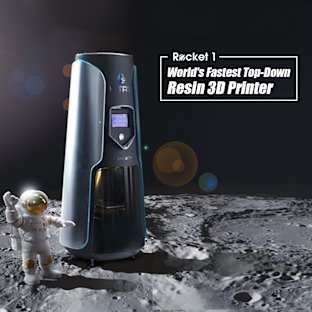Our Intent
We, Revolutionary Gardens and OASIS Project Development Group, are building a fully off-grid, solar heated, thermal-bubble insulated greenhouse, to produce fresh, organic fruits, vegetables and fish all year round. Beyond just growing food, we would like to educate and showcase to everyone how they can sustainably produce nutritious and yummy food for themselves. Our current commercialized food system is not sustainable. The cost of food production in this system is tied directly with the price of fossil fuels through transportation costs, chemical pesticides, and chemical fertilizer production. The burning of fossil fuels, and the use of chemical pesticides and chemical fertilizer are polluting the air, our land, our food and our water. Our OASIS greenhouse project, is one of the many solution focused approaches, to producing urban or near-urban agriculture, and paving the way to a cleaner and less wasteful economy.
Who We Are
Please allow us to introduce ourselves, we are Revolutionary Gardens CSA Greenhouses. Welcome to our sustainable organic world of low-impact, high-intensity, near-urban food production. We have a passion for fresh, sustainable and locally grown food. If you are curious about where food comes from, or why it travels so far to get to our table, or you are interested in eating and living healthier or you love fresh produce, this is where you need to be. Gardening and food sharing builds stronger communities by bring friends and neighbours together for a common cause! Regardless of how you found us, we are living in dangerous times, where healthy, pesticide and chemical free food is uncommon. Join us to start a movement, that allows everyone to produce delicious, healthy, super-nutritious food, all year round!
Our Vision
At Revolutionary Gardens, we believe that small diverse market farms are the answer to high quality produce for all. Because of their smaller size, these markets, can produce well cared for crops and distribute food locally. They can also respond to the needs of communities more quickly. Our long term vision is not only to produce fresh organic produce for local markets and food hubs, but also to educate, through an urban agricultural learning center where we showcase the latest advanced methods in food cultivation, and technology for efficient use of water, energy and time in producing organic vegetables and animal protein. We will be demonstrating the use of aquaponics, bioponics, and aeroponics in our learning centre. Aquaponic growing systems are shown to take half the time to grow crops to harvest with 10% as much water as traditional farming - yielding the most animal protein production recorded of all livestock commercially raised. On average 1 pound of fish protein is produced for every 1 ½ pounds of fish feed invested.
Our Project
Revolutionary Gardens is a leading partner in the OASIS Project Development Group. OASIS stands for Organic Aquaponic Sustainable Integrated System. This project is a collaborative effort, whose mission is to increase local food security and to bring back local food sovereignty. We plan to achieve this by developing urban organic food growing communities and increasing urban food production through outreach, education and access to urban agriculture technology, training and support. Our other partners include Photonics (specialize in Renewable energy), Urban Crops (low cost, open source, urban agriculture technology), and LIFT (Low-Income Families Together), a Non-Profit Resource and Education Centre working on food security and social enterprises in vulnerable urban communities. Our latest project is a pilot test model greenhouse. This state-of-the-art passively heated Solaroof design consists of a 28ft x 56ft tunnel structure nestled inside a 32ft x 60ft structure to create a roughly 2ft thick void filled as needed, with biodegradable, non-toxic soap bubble foam. This allows the OASIS greenhouse to retain thermal energy captured from the sun during the day, and help maintain the system’s dynamic equilibrium throughout the night. This climate control technology will make it possible to grow organic plants and fish year round with minimal energy input. This leading edge technology, provides high-efficiency, high value, and long-term return on investment. In this final phase of building, we plan to install the solar cells, set up the bubble generator and to install the aquaponic systems. To make this fully off-grid and resilient pilot model a success, we need your assistance to raise $15,000, technically $16,129 to cover the fees deducted by Indiegogo.
The Problems with Centralized Food and the Impending Crisis
We as a global community, desperately need to engage in a public discourse on the unsustainable practices of our current commercialized food system. This system is always under threat for potential disruption and contamination. As a result of the lack of accountability, food poisoning, food shortages, and food wastes incidences occur on a regular basis. In this system food security is always an issue. For example, “trucked” in produce could exorbitantly increase in price with the price of fossil fuels, seasonal changes and natural disasters could interrupt our food supply, traditional mono crop farming year after year depletes the nutrients in soil leading to erosion and the need for artificial chemical fertilization which is also "trucked" in, and commercial "conventional" greenhouses burn massive amounts of fossil fuels to heat.
The irony is that greenhouses are now contributing to greenhouse gas emissions. Is it nonsensical that the typical Canadian meal is transported 2000 km? The current global economy supplies an incredible array of foods to all corners of the earth, but does so at a high cost to the environment.
In today’s modern industrialized world, we have lost our once intimate relationship with food. I have come to realize that community starts with fundamentals of living, and nothing is more fundamental than food. In our fast paced, busy, urban life, we’ve not only become alienated from each other, but also from our food. With all this convenience, technology, abundance and prosperity, most of us don’t even know our neighbours by their first name. When is the last time your shook the hand of the person that raised the chicken you ate for lunch? It’s no wonder so many people take food security for granted, thinking there will always be plenty of it in the supermarket, or their favourite restaurant. Technology undoubtedly makes our lives easier, and connects us in ways our distant ancestors could only have dreamed of, yet most don’t realize that those same ancestors were connected by the food they produced and shared while celebrating life and kinship, in community.
Our Solution
Technology has been referred to as a double edged sword. Like many things in life, it can be beneficial in some respects yet damaging in others. What if someone you’ve never met in person, connected with you through this new virtual community on the internet, and told you there was a way to bring back that connection with our food and our local community. Would you believe them? Would you even be aware of the need for it? What you are about to discover is that agricultural equipment technology may have contributed to getting us in this predicament, but it’s shaping up to be our saving grace in these rather uncertain times. There is currently a greenhouse technology that allows your local food producers to supply you with fresh, nutritious, and amazingly, out of season, fruits and vegetables with virtually no fossil fuels or environmental impact. In fact, there are a myriad of emergent technologies that are making their way into workshop basements, backyards, and greenhouses in urban locales everywhere. These technological innovations are paving the way to a cleaner and less wasteful economy, and hopefully a cleaner ecosystem too. Some experts are calling this the new “green” economy. The most effective lifestyle choice you can make to promote this emergent economy, a cleaner environment and bill of health, is to choose wisely what you put on your plate.
What do we mean by a green economy, you ask? Simply put, a green economy is low-carbon, resource efficient, and socially inclusive local to global management system. A few distinguishing features are :
1) Efficient use of energy and other resources. For example, huge economic and environmental gains could be made if we had more energy efficient buildings and transportation.
2) Use of renewable resources, like wind and solar, instead of non-renewable resources, such as coal and oil
3) Application of greener manufacturing which is resource efficient and avoids the use of use toxic chemicals.
Urban Agriculture innovators like rooftop gardeners, aquaponic gardeners, and Small Plot Intensive (or Spin) farmers are working hard to reshape our local food growing, production and distribution. These innovators are not acting alone, they are simply the first ones reacting to a groundswell of different ideological shifts in public perception. Terms like foodie or “locavore” describe these trends, and are not only hip sounding, but are part of a whole new language being spawned by the need for food security. The Slow Food movement founded by Carlo Petrini, became an international association in 1989. It now boasts 85,000 members and offices in dozens of countries. Slow Food stresses the need for taste education as the best defense against poor quality and food adulteration, and incursion of fast food into our diets. It helps to safeguard local cuisines, traditional products, vegetable and animal species at risk of extinction. It supports a new model of agriculture, essentially permaculture, which is less intensive and healthier, founded on the knowledge and know-how of local communities. This is the only type of agriculture able to offer prospects for development to the poorest regions on our planet.
Please help this dream manifest into a reality. Contribute today and tell your friends about us too! You can be sure your contribution will go towards supporting local urban and near-urban agriculture. Those who contribute $1000 or more will receive 15% discounts for life on all workshops or gala events to be hosted at this first OASIS greenhouse.
Thanks in advance for your support









































